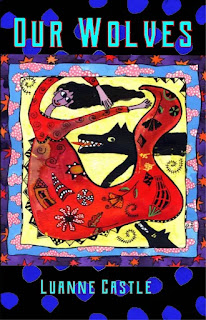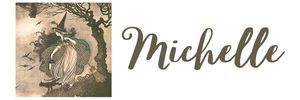Having just finished reading
The Brothers Grimm: Two Lives, One Legacy by Donald R. Hettinga, it got me thinking about instances I'd heard of these tales being challenged in the recent past. So I decided to examine the topic in today's post.
When Wilhelm Grimm was completing the second edition of the fairy tales, consolidating the two earlier volumes into one, he decided to make Household Tales less a book for adults and more a book for children. Despite censors wanting him to edit out "whatever refers to certain situations and relations that take place every day and simply cannot be hidden," (by "certain situations and relations," Wilhelm meant sex and pregnancies outside of marriage, and also the violence that had been complained of), Wilhelm was against removing these instances from the books. He said, "You can fool yourself into thinking that what can be removed from a book can also be removed from real life." (
The Brothers Grimm, p. 100)
That last quote..fitting for Banned Books Week, I think.
These are just a few instances of Grimms' tales or complete collections being challenged:
- Citing concerns about alcohol use, an illustrated edition of "Little Red Riding Hood" was banned in two California school districts in 1989 because it depicted our heroine taking food and wine to her grandmother.
- The Complete Fairy Tales of the Brothers Grimm was banned in classrooms below the 6th grade in Arizona in 1994, due to "excessive violence, negative portrayals of female characters, and anti-Semitic references."
- “Snow White” was restricted to students with parental permission at the Duval, Fl County public school libraries (1992) because of its graphic violence: a hunter kills a wild boar, and a wicked witch orders Snow White’s heart torn out.

Notably, in regards to Snow White, I read the Caldecott Award winning
Snow-White and the Seven Dwarfs: A Tale from the Brothers Grimm several years back for my Children's Literature course in college and in this version, faithful to the Grimms' original, at the end, the evil stepmother is forced to dance in red-hot iron shoes until she falls down dead. I'm sure this might also have contributed to the challenge above.
The Grimms’ texts have undergone so many adaptations and translations, often with the intent of censoring objectionable material such as the violence meted out to villains or of making the themes more relevant to contemporary tastes, that most of us know them only in their sanitized versions. The dust-jacket copy of a recent translation plaintively wonders if all the retellings don’t “greatly reduce the tales’ power to touch our emotions and intrigue our imaginations.”
In a fourth-grade classroom in Steinau, Germany, the town where the Grimms spent part of their childhood, I listened as the storyteller Elfriede Kleinhans, an opponent of prim retellings, asked the boys and girls how the princess managed to turn a frog into a prince at the climax of the “The Frog King,” the first tale in the Grimms’ collection. “She kissed it,” the children sang out. “No,” said Kleinhans. “She threw the ugly frog at the wall as hard as she could, and it awoke as a prince. That’s what the real story says.” The children looked as if they didn’t believe her.
Scholars and psychiatrists have thrown a camouflaging net over the stories with their relentless, albeit fascinating, question of “What does it mean?” Did the tossing of the frog symbolize the princess’s sexual awakening, as Freudian psychologist Bruno Bettelheim asserted, or does the princess provide a feminist role model, as Lutz Röhrich, a German folklorist, wondered, by defying the patriarchal authority of her father, the king? Or—maybe—a frog is just a frog.
The tales have also fallen prey to ideologues and propagandists. Theorists of the Third Reich in Germany turned Little Red Riding Hood into a symbol of the German people, saved from the evil Jewish wolf. At the end of World War II, Allied commanders banned the publication of the Grimm tales in Germany in the belief that they had contributed to Nazi savagery.
On campuses across Europe and the United States during the 1970s, the Grimms’ tales were scorned for promoting a sexist, authority-ridden worldview. “Madness Comes From Fairy Tales” was scrawled on walls in Germany. Some of the stories were rewritten to accommodate certain political tastes. A revision of “Cinderella,” for example, has the heroine organizing a union of local maids, prompting the king to arrest her, after which she emigrates to the U.S. to escape the tyranny of kings and queens.
Asked about this landslide of commentary by shrinks and scholars and ideologues, Bernhard Lauer, director and curator of the Museum of the Brothers Grimm in Kassel, Germany, looked sadly at me and protested, “The tales are literary masterpieces! They are not recipes for everyday life.”
There are some very good reasons why kids should read the non-Disney versions of fairy tales (and don't get me wrong...I like the Disney versions just fine).
These original tales teach life lessons and encourage intelligence. For instance, “The Little Mermaid” was not written to teach us how to marry a prince, but to warn us that our actions have consequences. “If you want your children to be intelligent, read them fairy tales. If you want them to be more intelligent, read them more fairy tales.” --Albert Einstein
Fairy tales offer up hope. Hope of redemption, that good can conquer evil, that our enemies will be vanquished. “Fairy tales are more than true: not because they tell us that dragons exist, but because they tell us that dragons can be beaten.” --Neil Gaiman
The original tales tell the truth...often hard truths. The Disney versions often make happily ever after seem so easy. The original versions do not all have happy endings. They show us that bad things can, and do, happen. “When I was a little girl I used to read fairy tales. In fairy tales you meet Prince Charming and he's everything you ever wanted. In fairy tales the bad guy is very easy to spot. The bad guy is always wearing a black cape so you always know who he is. Then you grow up and you realize that Prince Charming is not as easy to find as you thought. You realize the bad guy is not wearing a black cape and he's not easy to spot; he's really funny, and he makes you laugh, and he has perfect hair.” --Taylor Swift
They teach kindness and the true meaning of love. “There is the great lesson of 'Beauty and the Beast,' that a thing must be loved before it is lovable.” --G.K. Chesterton
Fairy tales expand our idea of the world of possibilities. These stories bring fairies, magicians, giants, and trolls into our ordinary world, stretching the imagination and urging us to think "What if?" And though we realize these stories are fiction, we still like to believe they're true. “I really feel that we're not giving children enough credit for distinguishing what's right and what's wrong. I, for one, devoured fairy tales as a little girl. I certainly didn't believe that kissing frogs would lead me to a prince, or that eating a mysterious apple would poison me, or that with the magical "Bibbity-Bobbity-Boo" I would get a beautiful dress and a pumpkin carriage. I also don't believe that looking in a mirror and saying "Candyman, Candyman, Candyman" will make some awful serial killer come after me. I believe that many children recognize Harry Potter for what it is, fantasy literature. I'm sure there will always be some that take it too far, but that's the case with everything. I believe it's much better to engage in dialog with children to explain the difference between fantasy and reality. Then they are better equipped to deal with people who might have taken it too far.” --J.K. Rowling
Fairy tales give kids scary in a safe format. They allow kids to learn that scary situations can be dealt with. As we read, we transport ourselves into the stories and, being stories, they allow us to avoid experiencing the scary directly. Rather, we learn how characters face fear. Lessons are learned from the experiences in the stories. “Every fairy tale had a bloody lining. Every one had teeth and claws.” --Alice Hoffman
Perhaps a very important reason for reading the less Disney versions of fairy tales is to show our girls that they can be who and what they want and they don't need Prince Charming to rescue them. Let's face it, Disney has really championed the Prince Charming idea (with the exception of recent films, such as Tangled, Brave, and Frozen, for which I commend Disney for bringing girls out of the shadow of being rescued by a guy), and in this age when women are still not getting the equal treatment/rights they deserve, it's important for girls to know that anything is possible. “Yet what keeps me from dissolving right now into a complete fairy-tale shimmer is this solid truth, a truth which has veritably built my bones over the last few years--I was not rescued by a prince; I was the administrator of my own rescue.” --Elizabeth Gilbert
So, you see...the banning or challenging of original fairy tales could take valuable learning experiences out of the hands of our children. Yes, many of these tales may be harsh or violent, and that is when it is important to discuss the tales with our children by asking questions like, "What truth about the world is this story telling you?" or "Why did the evil stepmother meet such an evil end? Could her punishment have been dealt with in a different way?"
Conversation is key to helping our kids understand what is meant and what the lesson is. Completely disallowing them to have these learning experiences, not to mention the fun, is the true tragedy of banning and challenging books.








